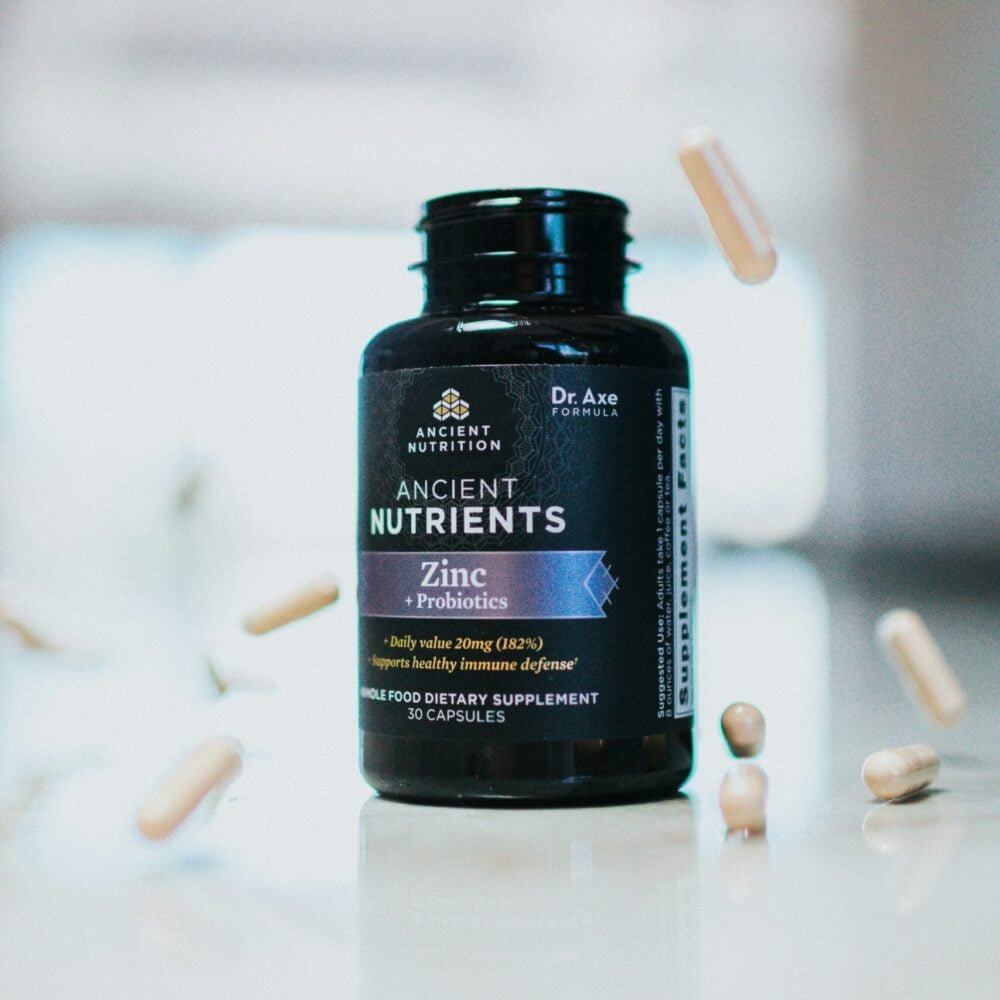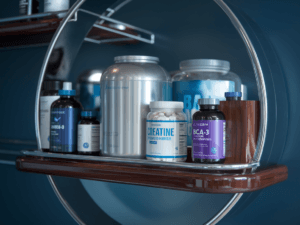Introduction to Bicarbonate as an Ergogenic Aid
Hello dear readers,
Before we dive into today’s content, I want to share something important with you. Although I’m passionate about the topic we’re going to discuss and have spent a lot of time researching and learning about it, it’s essential to clarify that I am not a professional in the field.
What you will read next are insights and information that I have gathered based on my personal experience and self-taught studies. My intention is to start a conversation, share what I’ve discovered, and maybe help someone who is on the same journey of discovery. If you are an expert on the subject, your comments and guidance are very welcome, as we are all here to learn and grow together.
Now, let’s get to the good stuff!
Ergogenic aids are substances or devices that enhance energy production, utilization, or recovery, thereby improving athletic performance. Among the various ergogenic aids available, bicarbonate has gained notable attention in recent years. Bicarbonate, chemically known as sodium bicarbonate (NaHCO3), is a naturally occurring compound that is widely used in everyday life. Commonly found in baking soda, it is utilized for baking, cleaning, and even in certain medical treatments such as antacids for indigestion.
The growing interest in bicarbonate as a performance-enhancing supplement stems from its potential to buffer lactic acid produced during high-intensity exercise. When the body engages in strenuous physical activity, it produces lactic acid, which can lead to muscle fatigue and diminished performance. Bicarbonate acts as a buffer, helping to neutralize this acid and maintain the body’s pH balance. This buffering capacity is what makes bicarbonate an intriguing option for athletes looking to truly enhance their performance.
In addition to its buffering capabilities, bicarbonate has been studied for its effects on various types of athletic performance, including endurance sports and high-intensity activities. Research has shown that sodium bicarbonate supplementation can delay the onset of muscle fatigue, allowing athletes to sustain high-intensity efforts for a longer duration. This is particularly beneficial for sports that involve repeated bursts of intense activity, such as sprinting, swimming, and team sports.
As interest in natural and effective performance enhancers grows, bicarbonate stands out for its accessibility and robust scientific backing. While it is already a staple in many households for its diverse applications, its role in athletic performance is increasingly being recognized and appreciated. This burgeoning interest underscores the need for a deeper understanding of how bicarbonate truly enhances athletic performance and its potential implications for athletes across various disciplines.
The Science Behind Bicarbonate’s Performance-Enhancing Effects
Bicarbonate, a naturally occurring compound in the body, plays a crucial role in maintaining pH balance. As an ergogenic supplement, it truly enhances performance by acting as a buffer against acid accumulation in the blood and muscles. During high-intensity exercise, the body produces lactic acid, which can lead to decreased pH levels and subsequent muscle fatigue. Bicarbonate supplementation helps to neutralize this acid, thus delaying the onset of fatigue and improving endurance.
The mechanism by which bicarbonate exerts its effects is primarily through its buffering capacity. Bicarbonate ions (HCO3-) interact with hydrogen ions (H+), which are produced during anaerobic glycolysis, to form carbonic acid (H2CO3). This carbonic acid is then converted to water and carbon dioxide, which can be exhaled. This process helps to maintain the pH levels within the muscle cells and blood, thereby preventing the detrimental effects of acidosis.
Several scientific studies have explored the efficacy of bicarbonate as a performance-enhancing supplement. For instance, a study published in the “International Journal of Sports Physiology and Performance” found that athletes who consumed bicarbonate prior to exercise exhibited significant improvements in high-intensity performance compared to those who did not. Another study in the “Journal of Applied Physiology” demonstrated that bicarbonate supplementation enhanced endurance by delaying the accumulation of lactic acid in the muscles.
Moreover, research has indicated that the benefits of bicarbonate are not limited to elite athletes. Recreational athletes may also experience enhanced performance, particularly in activities that require short bursts of high-intensity effort. This makes bicarbonate a versatile supplement for a wide range of sporting activities, from sprinting to weightlifting.
In conclusion, the science behind bicarbonate’s performance-enhancing effects is well-documented. By acting as a buffer to neutralize acid in the blood and muscles, bicarbonate can delay fatigue and improve endurance, making it a valuable supplement for athletes looking to enhance their performance.
Bicarbonate, a common ergogenic supplement, has been extensively studied for its performance-enhancing effects. Numerous research studies have demonstrated its efficacy, particularly in high-intensity exercise, endurance sports, and repeated sprint performance. This section will review key studies that provide compelling evidence supporting bicarbonate’s efficacy.
High-Intensity Exercise
One notable study by McNaughton et al. (1997) investigated the impact of bicarbonate supplementation on high-intensity cycling performance. Participants consumed sodium bicarbonate and then performed a cycling test to exhaustion. The results showed a significant increase in time to exhaustion, indicating improved performance. Similarly, a study by Wilkes et al. (1983) found that bicarbonate ingestion enhanced performance in a 400-meter sprint, with athletes demonstrating faster completion times compared to a placebo group.
Endurance Sports
In the realm of endurance sports, research by Lindh et al. (2008) focused on trained cyclists and found that bicarbonate supplementation improved performance in a 60-minute time trial. The study revealed that athletes who ingested bicarbonate were able to maintain higher power outputs throughout the trial. Furthermore, a study conducted by Price and Simons (2010) on elite swimmers indicated that bicarbonate supplementation improved performance in a 200-meter freestyle event, highlighting its benefits for endurance athletes.
Repeated Sprint Performance
Repeated sprint performance, crucial in many team sports, has also been shown to benefit from bicarbonate supplementation. A study by Bishop et al. (2004) examined the effects of bicarbonate on repeated sprint ability in soccer players. The findings indicated that players who consumed bicarbonate performed better in a series of 6 x 20-meter sprints, with reduced fatigue and better maintenance of sprint speed. Additionally, research by Edge et al. (2006) supported these findings, demonstrating improved performance in repeated cycling sprints among trained athletes.
Overall, these studies collectively highlight the efficacy of bicarbonate as a supplement that truly enhances performance across various athletic disciplines. The evidence from controlled trials underscores its potential to improve high-intensity efforts, endurance, and repeated sprint performance, making it a valuable ergogenic aid for athletes seeking a competitive edge.
Optimal Dosage and Timing for Bicarbonate Supplementation
Understanding the optimal dosage and timing for bicarbonate supplementation is crucial for athletes seeking to maximize its performance-enhancing benefits. Scientific research suggests that the most effective dosage typically ranges between 0.2 to 0.3 grams per kilogram of body weight. This dosage should be tailored to the individual’s body weight to ensure efficacy and minimize potential side effects, such as gastrointestinal discomfort.
Timing is another essential factor to consider when incorporating bicarbonate into your supplementation regimen. Studies indicate that consuming bicarbonate approximately 60 to 90 minutes before exercise can significantly enhance performance, particularly in high-intensity, short-duration activities. This timing allows for peak blood bicarbonate levels, thereby optimizing the buffer capacity against lactic acid buildup during strenuous exertion.
Individual variability plays a significant role in how effectively bicarbonate supplementation can enhance performance. Factors such as age, diet, and overall fitness level can influence how one’s body responds to bicarbonate. Therefore, it is advisable for athletes to conduct personalized trials to determine the most effective dosage and timing. Starting with a lower dose and gradually increasing it can help mitigate any potential adverse effects.
Practical tips for athletes considering bicarbonate supplementation include starting with a smaller dose to assess tolerance and gradually increasing to the recommended dosage. It is also beneficial to consume bicarbonate with a carbohydrate-rich meal or beverage to improve palatability and absorption. Additionally, using sodium bicarbonate in a buffered form, such as in capsules or specially formulated sports drinks, can help reduce gastrointestinal issues.
Incorporating bicarbonate as a supplement can truly enhance performance when used correctly. By following these guidelines on dosage and timing, athletes can optimize the benefits of bicarbonate and achieve their performance goals more effectively.
Potential Side Effects and How to Mitigate Them
While bicarbonate supplementation can offer significant benefits for athletic performance, it is important to be aware of potential side effects. One of the most common issues reported is gastrointestinal discomfort. This can manifest as bloating, gas, or even nausea. Understanding how to appropriately manage these side effects can ensure that the supplement truly enhances your performance without causing unnecessary discomfort.
One effective strategy to mitigate gastrointestinal issues is to adjust the dosage. Starting with a lower dose and gradually increasing it allows the body to acclimate to the supplement. For instance, instead of taking a full dose immediately, athletes can begin with a smaller amount and incrementally raise it over several days or weeks. This approach can significantly reduce the likelihood of experiencing severe gastrointestinal distress.
Testing tolerance during training sessions is another crucial step. Rather than introducing bicarbonate supplementation right before a major event or competition, it is advisable to trial its use during regular training. This allows athletes to gauge their body’s response in a controlled environment and make necessary adjustments beforehand. Training sessions also provide an opportunity to experiment with different dosages to identify the optimal amount that maximizes performance benefits while minimizing side effects.
Staying hydrated is equally important when supplementing with bicarbonate. Adequate hydration helps in diluting the supplement in the stomach, thereby reducing the risk of gastrointestinal discomfort. Drinking water before, during, and after bicarbonate intake can assist in maintaining a balanced internal environment, which is essential for optimal performance. Additionally, spreading the bicarbonate dose throughout the day rather than consuming it all at once can also help in reducing gastrointestinal issues.
In summary, while bicarbonate supplementation can be a valuable ergogenic aid, managing its potential side effects is crucial. By carefully adjusting the dosage, testing tolerance during training, and ensuring adequate hydration, athletes can discover how this supplement truly enhances their performance without the downside of gastrointestinal discomfort.
Comparing Bicarbonate to Other Popular Ergogenic Aids
When evaluating the efficacy of bicarbonate as an ergogenic supplement, it is essential to compare it to other well-established aids such as caffeine, creatine, and beta-alanine. Each of these supplements has distinct properties, advantages, and disadvantages that cater to specific athletic needs and performance goals.
Caffeine is one of the most widely consumed ergogenic aids, known for its ability to enhance alertness and reduce the perception of effort during exercise. Scientific studies have consistently demonstrated caffeine’s effectiveness in improving endurance performance. However, its efficacy can vary significantly among individuals due to genetic differences in caffeine metabolism. Moreover, excessive intake can lead to jitteriness, anxiety, and gastrointestinal distress, potentially hindering performance rather than enhancing it.
Creatine, another popular supplement, is particularly beneficial for activities that require short bursts of high-intensity effort, such as sprinting and weightlifting. It works by increasing the availability of phosphocreatine in muscles, thereby enhancing the ability to produce ATP rapidly. While creatine is highly effective for strength and power athletes, its benefits for endurance sports are limited. Furthermore, some users may experience weight gain due to water retention, which could be a disadvantage in sports where weight categories are crucial.
Beta-alanine is primarily known for its role in buffering hydrogen ions, which helps delay muscle fatigue during high-intensity exercise. This makes it particularly useful for activities lasting between one to four minutes, such as rowing or middle-distance running. However, beta-alanine supplementation can cause paresthesia, a tingling sensation on the skin, which some individuals find uncomfortable.
Bicarbonate, on the other hand, functions as a buffering agent that helps neutralize lactic acid produced during anaerobic exercise, thus delaying the onset of fatigue and enhancing performance in high-intensity activities lasting from one to ten minutes. Studies have shown that bicarbonate supplementation can improve performance in sports like swimming, cycling, and rowing. However, gastrointestinal discomfort is a common side effect, which can be mitigated by adjusting the dosage and timing of ingestion.
In summary, while caffeine, creatine, and beta-alanine each offer unique benefits, bicarbonate stands out in scenarios requiring sustained high-intensity effort. Athletes should consider their specific performance goals, individual responses to supplements, and potential side effects when choosing the most suitable ergogenic aid.
Practical Applications: Integrating Bicarbonate into Training Regimens
For athletes and coaches aiming to optimize performance, the strategic use of bicarbonate supplementation can be a game-changer. Bicarbonate, known for its buffering capabilities, helps neutralize lactic acid buildup, thereby delaying fatigue and enhancing exercise intensity. To harness these benefits effectively, it is essential to tailor intake protocols according to the sport and training phase.
For endurance sports such as cycling or long-distance running, athletes can benefit from a loading phase where bicarbonate supplementation is started a few days before a key event. A common approach is to consume 0.3 grams of bicarbonate per kilogram of body weight, divided into multiple doses throughout the day to minimize gastrointestinal discomfort. For example, an athlete weighing 70 kilograms would take approximately 21 grams of bicarbonate, split into smaller doses, and mixed with water or a carbohydrate-rich beverage.
In high-intensity sports like sprinting or weightlifting, where short bursts of energy are crucial, a single dose approach is often more effective. Athletes can consume 0.2 grams per kilogram of body weight 60-90 minutes before the competition or training session. This timing allows bicarbonate to peak in the bloodstream, providing optimal buffering capacity when it is most needed.
While bicarbonate supplementation is promising, it is not without potential drawbacks. Some athletes may experience gastrointestinal issues such as bloating or nausea. To mitigate these effects, it is advisable to start with lower doses and gradually increase as tolerance builds. Additionally, bicarbonate should be taken with adequate hydration to aid absorption and reduce stomach discomfort.
Integrating bicarbonate into training regimens requires careful consideration and individual experimentation. Coaches should monitor athletes’ responses and adjust protocols accordingly. By doing so, they can effectively leverage bicarbonate as an ergogenic supplement that truly enhances performance, helping athletes reach new heights in their sport.
Conclusion: The Role of Bicarbonate in Enhancing Athletic Performance
In recent years, bicarbonate has garnered substantial attention as an ergogenic supplement that truly enhances performance. The scientific community has provided compelling evidence supporting its effectiveness, particularly in high-intensity and endurance sports. By buffering lactic acid accumulation, bicarbonate helps delay the onset of muscle fatigue, thereby allowing athletes to maintain peak performance for longer periods.
Proper usage of bicarbonate is crucial for maximizing its benefits. Athletes should adhere to recommended dosages and timing to avoid potential gastrointestinal discomfort. Typically, a dose of 0.3 grams per kilogram of body weight, taken 60 to 90 minutes before exercise, has been shown to be effective. However, individual tolerance can vary, so gradual introduction and personal experimentation are advised.
In addition to its performance-enhancing properties, bicarbonate is generally considered safe when used appropriately. Nevertheless, athletes should be mindful of possible side effects and consult with a healthcare professional before incorporating it into their regimen. This due diligence ensures that they can reap the benefits without compromising their overall health.
The future of bicarbonate research holds promising potential. Ongoing studies aim to refine dosing strategies, explore synergies with other supplements, and expand its application to various sports disciplines. As our understanding deepens, bicarbonate is poised to become a staple in sports nutrition, offering athletes a reliable means to enhance their performance.
In conclusion, bicarbonate stands out as a scientifically-backed supplement that truly enhances athletic performance. Its ability to buffer lactic acid and delay fatigue makes it an invaluable tool for athletes striving for excellence. With proper usage and continued research, bicarbonate will undoubtedly solidify its place in the world of sports nutrition.








